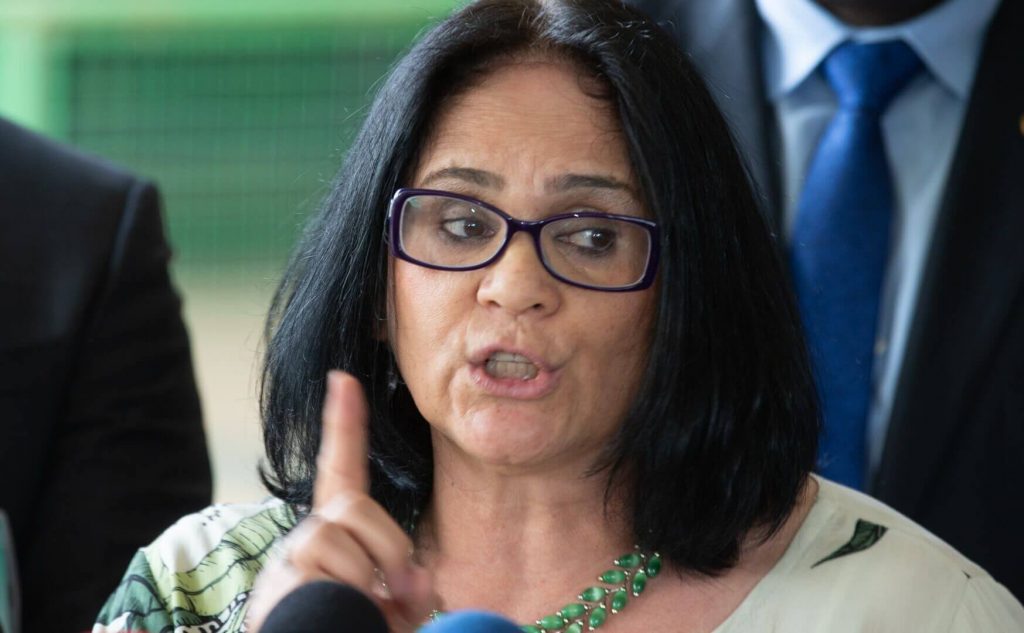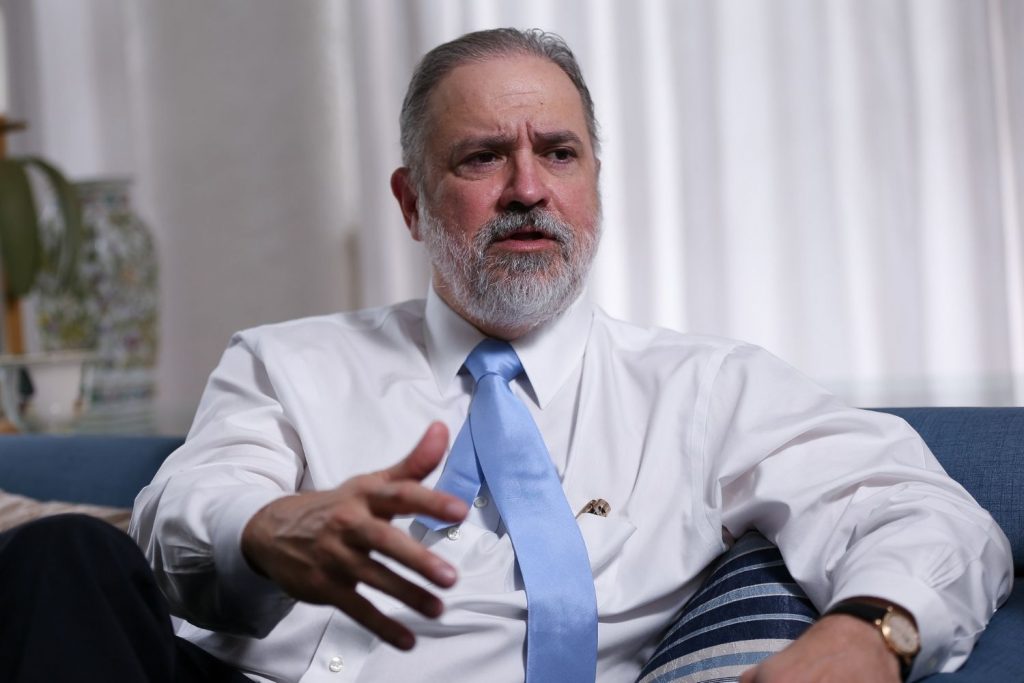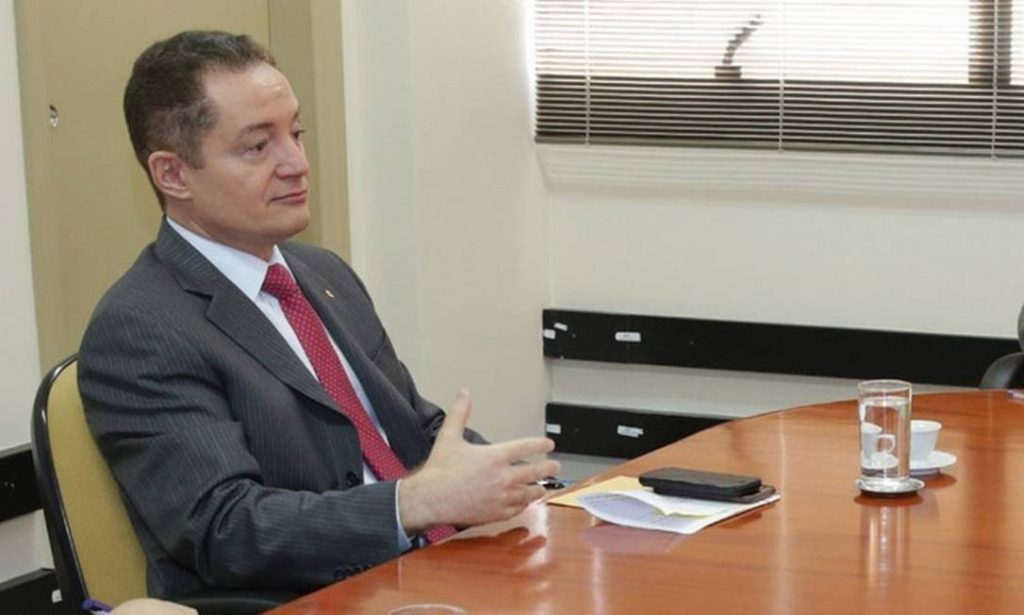RIO DE JANEIRO, BRAZIL – A coordination between social movements, represented by non-governmental organizations (NGOs), and the opposition to Jair Bolsonaro‘s government in the Legislature, succeeded in preventing a representative of the far right from taking over the presidency of the National Human Rights Council.

In an election held on Thursday, the councilors elected the Federal Public Defender Renan Vinicius Sotto Mayor, to the presidency of the body. In recent weeks, there has been an intense activity between the Ministry of Women, Family and Human Rights, headed by Pastor Damares Alves, and the Prosecutor General’s Office headed by Augusto Aras to try to shield the federal government from criticism in the field.
Aras and Damares wanted to choose the president of the body. However, they failed because there was a lack of political negotiation with representatives of the ruling parties in Congress. The majority bloc in the Chamber and Senate failed to appoint the two names to which they were entitled on the council, although the opposition did.
As a result, instead of 22 voters, there were 20, which weakened any governing candidacy. Damares and Aras’s favored name for the collegiate presidency was Ailton Benedito, a right-wing influencer on social media. But realizing that he would not have the required minimum 11 votes to be elected, Benedito withdrew his candidacy.
The National Human Rights Council (CNDH) is a consultative body, yet strategic due to its independent nature, despite receiving federal funds. Its role is to investigate potential violations committed by officials such as state and municipal governments, ministries and the police, as well as public and private companies, and to file public complaints that will be addressed through notes, decisions and guidelines. It is made up of 11 government representatives and 11 members of civil society.
The CNDH president sets the tone for the criticism approved by the full council, and he also determines the moment when public complaints will be filed. In addition, he takes part in public hearings and meetings with foreign ambassadors to address human rights issues. In extreme cases, he may be a spokesperson for chaos or a compromiser, who, even if observing violations, seeks to mitigate the attacks against the ruler at the time.
“The coordination of civil society, which pressed for the active involvement of the Brazilian legislative branch, was able to reassert the CNDH’s independence,” said the body’s vice-president, Leonardo Penafiel Pinho, of the UNISOL cooperative.

The first year of Jair Bolsonaro’s government was one of the most turbulent for the CNDH. In 12 months, the councilors had the same amount of work as in the previous two years combined. According to the activities reports collected by El País, in 2019 the council produced 85 actions, including recommendations, reports, public notes, and assignments. This is the same number achieved in the years 2017 and 2018 under the Michel Temer administration.
Among the council’s findings last year were the public safety crises in Ceará and Rio de Janeiro, the suspected illegalities in the detention of firefighters in Alter do Chão (PA), the oil spill in the Northeast, the actions of the Penitentiary Intervention Tactical Force, which was suspected of torturing inmates, and the impacts of the Belo Monte plant in the Xingu Valley (PA). This year, two new missions are already in their planning stages and should be included in the board’s agenda as soon as the steering committee is reinstated.
Three obstacles
The effort to undermine the body and attempt to place someone in line with the far-right administration began last year. It can be divided into three actions. The first was when Damares dismissed civil servant Caroline Dias dos Reis from her position as the council’s general coordinator. Despite being independent, the NHRC relies on government employees to operate.
Caroline Reis was one of them. In her place, the minister appointed Liz Abad Maximinano, geographer, doctor of science, and former adviser to the NGO Atini, founded by Damares and investigated by the Prosecutor’s Office. Until she was appointed to the position, Liz had no experience in the human rights field.
In the second action, the Ministry of Economy reduced the council’s budget from around R$500,000 (US$125,000) to R$360,000 annually – later it was forced to set aside another R$1.1 million from the Treasury because federal deputies and senators introduced compulsory amendments to the budget.
In the third and perhaps most telling action, in December last year, Prosecutor General Augusto Aras dismissed Deborah Duprat, Federal Prosecutor for Citizen’s Rights (PFDC), from the council of which she was vice president,. She is critical of Bolsonaro’s government and has worked in the human rights field for decades.

Her removal was not illegal, since it is up to the PGR to appoint who will represent its institution. In her place, Aras appointed prosecutor Benedito, who declares himself as a conservative, and is the head of the Prosecutor General’s Office in Goiás and Secretary of Human Rights in the PGR.
Benedito has 125,000 followers on Twitter. On the Internet, he often criticizes left-wing parties and praises measures adopted by Bolsonaro’s administration. He was one of the founders of the movement MP Pró-Sociedade (“Pro-Society MP”), a group of 95 prosecutors and justice attorneys advocating for the human rights of victims, critics of the so-called “globalism”. They reiterate the slogan that there is an “idolatry of criminals” in the country, advocate the reduction of the legal prosecution age from 18 to 16 years and are against the “policy of indiscriminate release of criminals”.
The Board of Directors is elected every two years. Its presidency and vice-presidency are rotational. One year the president must be someone from a government entity, in the other, a representative of civil society. As last year the president was Leonardo Penafiel Pinho, from the UNISOL cooperative, now it would be Duprat’s turn to take the post.
Aras and Damares’ aim was that Benedito would automatically be declared president of the NHRC in 2020. However, the collegiate’s by-laws provide that six people (three members of social movements and three from government), and not institutions, be elected to the body’s governing board. In other words, the position would be for Duprat, not for the PGR.
“The government thought it would solve everything with a pen, but they have not even read the regulations,” said one of the NHRC’s members. Without the prosecutor at the CNDH, the position at the table was declared vacant and a new election was required to fill it. Sotto Mayor, a professional who has been working in the field of human rights for years and has no ties to the Bolsonaros, was elected on Thursday.
Source: El País

